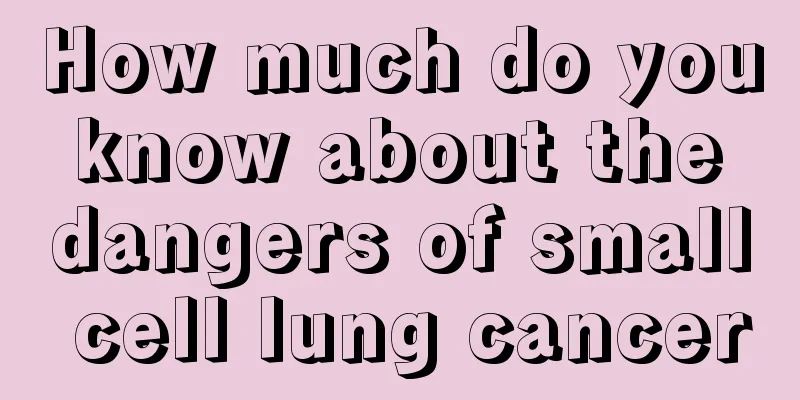Is my grandfather's rectal cancer hereditary?

|
Genetic factors: Except for patients with colorectal cancer caused by familial polyposis or malignant transformation of ulcerative colitis, about 5% to 10% of other colorectal cancer patients have a clear family history of tumors, collectively referred to as hereditary non-familial polyposis colorectal cancer, also known as Lynch syndrome. The specific manifestations are: (1) Three or more family members have colorectal cancer, two or more of whom are from the same generation; (2) At least two generations of the same family have been diagnosed with the disease; (3) At least one of them was diagnosed with colorectal cancer before the age of 50. It is understood that intestinal cancer usually refers to colorectal cancer, because the probability of small intestine cancer is extremely low. Colorectal cancer can be divided into two parts: colon cancer and rectal cancer. Doctors said that from the cases of colorectal cancer, obesity is related to the incidence of colorectal cancer. Therefore, the cause of colorectal cancer has a lot to do with people's eating habits. With the improvement of living standards, Chinese people who originally ate more vegetables and grains now start to eat a lot of meat and dairy products. High calories, excessive intake of animal fat and cholesterol, and obvious lack of fiber and vitamins all increase the incidence of colorectal cancer. Experts point out that the more animal fat you eat, the greater the risk of dissolving and absorbing carcinogens. A high-fat diet can increase the secretion of bile acid in the intestine, which has the potential to irritate and damage the intestinal mucosa. The lack of cellulose to dilute carcinogens can easily lead to an increase in the concentration of carcinogens after metabolism. If you are in this kind of stimulation and damage for a long time, it may induce the formation of tumor cells and lead to colorectal cancer. The early symptoms of colorectal cancer are not very obvious, but people can still find them early through some daily signs. The first is the change in bowel habits, such as increased urge to defecate, frequent bowel movements, but not much bowel movement each time, or even no stool at all, only some mucus and blood, and a feeling of incomplete defecation; the stool strips become thinner and the shape also changes to a flat shape, which is also worthy of vigilance. The second is the appearance of abdominal pain, abdominal mass, intestinal dysfunction, unexplained diarrhea, constipation and other manifestations, or unexplained anemia, weight loss, fatigue, low fever, etc. In addition, if there is blood in the stool or intermittent blood in the stool, you should go to a specialist for treatment in time. It is definitely related to the patient's genes. All I can say is that if one of your blood relatives has this disease, your chances of getting the disease are greater than the average person. |
<<: Can rectal cancer be contagious between husband and wife?
>>: What are the sequelae of rectal cancer
Recommend
How to wash leather clothes? Do you know how to clean leather clothes without causing damage?
How to wash leather jackets after wearing them fo...
Is chewing gum good for teeth?
Although chewing gum tastes good, you should not ...
How to prevent colon cancer
Experts point out that early stage colorectal can...
Symptoms of zinc deficiency in adults
Zinc is an essential element for the human body. ...
Tips to solve the problem of fluffy hair
Many people with dry hair will have fluffy hair a...
What common early symptoms of melanoma should we be alert to?
Knowing the early symptoms of melanoma is of grea...
Beware of aspiration after laryngeal cancer surgery
Aspiration is a common complication after larynge...
Things to note after a head injury
We encounter many things in our daily lives, some...
Which topical medications are effective for onychomycosis?
If you are not careful when washing your hands or...
What methods can prevent premature ejaculation?
Premature ejaculation is a very embarrassing thin...
What are the dangers of having lung cancer
I believe everyone knows that smoking is harmful ...
What are the predisposing factors of osteosarcoma
What are the inducing factors of osteosarcoma? Os...
What kind of tea is best to drink in autumn?
Autumn is one of the best seasons for health care...
What new drugs are there for treating bone cancer
Drugs for treating bone cancer are a major part o...
What are the dangers of high eosinophil count
Eosinophils are a type of white blood cell that c...









